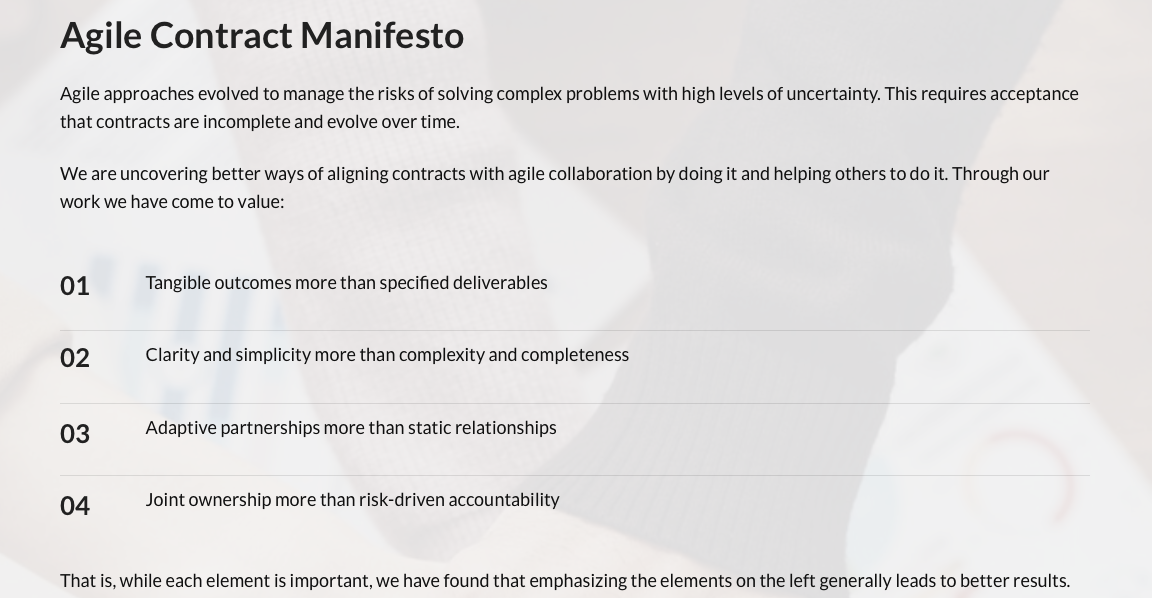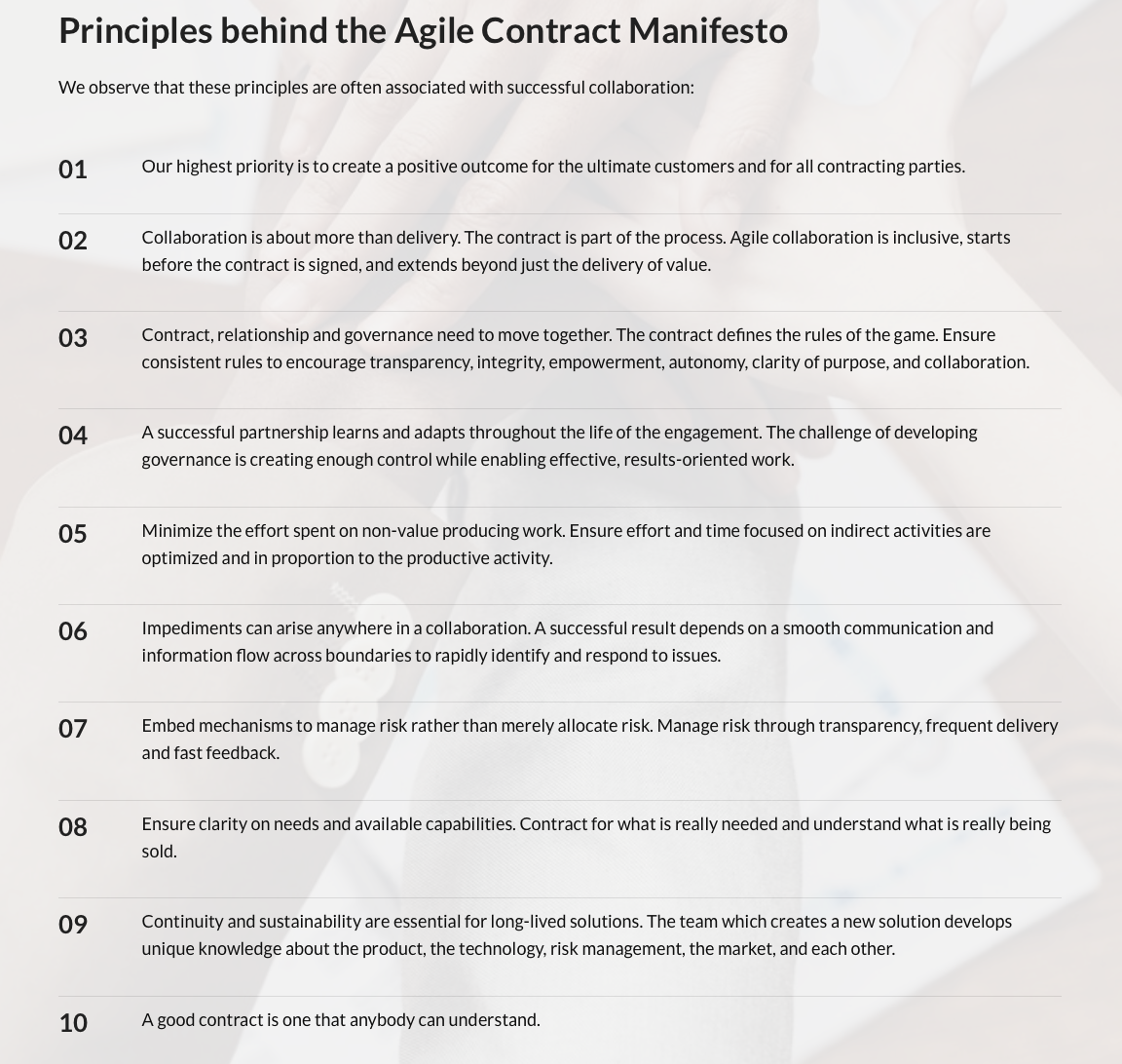This post is written by Mirko Kleiner and originally published in lean-agile-procurement.com blog
Agile collaboration became the new normal to deal with the ever-changing demands of today’s business. Often this collaboration isn’t supported enough with an as agile contract.
In this blog post you’ll learn about the only template you’ll ever need.
AGILE COLLABORATION – HOUSTON WE HAVE A PROBLEM!
With Lean-Agile Procurement we’re fostering collaboration and co-creation of e.g. the solution design, a joint agile roadmap, the proposal, etc. between all parties even before signing a contract. This is also because it turned out that the social- and cultural fit are as important success criterias, then the business fit. Nobody chooses his partner in life just because of her/his looking too. If we’re looking closer to an agile collaboration we’re constantly re-agreeing because of an ever changing environment. The interdisciplinary team consisting of internal- and external people is e.g. re-agreeing and improving their collaboration model, their joint agile roadmap, their joint business objectives of the next iteration, down to the concrete implementation of a customer need, etc. with every feedback cycle. These good practices e.g. applied with the help of Scrum became the new normal. So all good? Unfortunately not, Houston we have a problem!
The problem is that a lot of agile cross-company delivery teams lack of a legal foundation based on agile values & principles, that supports this kind of agile collaboration. Furthermore there hasn’t been a „standard“ yet, what an Agile Contract really is and what not. This made it difficult to onboard the legal community and even worse created an even bigger confusion in the agile community.
THE SOLUTION – THE ONLY TEMPLATE YOU’LL EVER NEED!
The easiest solution for defining a standard would be creating a, or even better THE template of an Agile Contract. This has served us very well up till now, where the things have been predictable. As Agile Collaboration tries to embrace uncertainty every contract became very contextual. To put it on one extreme: Sometimes the only thing we have is a vision like e.g. how Artificial Intelligence (AI) could support our business?-So time-n-material is the only way to go?-A clear NO!-T+M is just one possibility. But there is a whole spectrum of potential agile contract types e.g. driven by the level of risk-sharing.
The only solution for a standard left is to take it to the next level of abstraction: Values & principles. Please welcome the Agile Contract Manifesto (ACM), created by a global group of experts from agile-, commercial- and legal communities.
It consists of 4 main values..

.. and 10 principles

ACM IN PRACTISE – HOW TO APPLY THE ACM?
Similar to an Agile Contract are values & principles contextual too. So as a first step it’s recommended to create a joint understanding. The easiest is e.g. by sharing examples. Then you could take an existing „agile“ Contract and assess and improve it based on the ACM. It’s recommended to include all parties in that exercise such as e.g. Product Owner, delivery team members, agile coach or Scrum Master, lawyer, etc. as development of this legal foundation becomes a team effort as well to create the maximum ownership and minimizing risks at the same time. Tipp: Check out the Lean Procurement Canvas, which gives a lot of guidance to ask the important questions.
Furthermore it’s very important to understand that an Agile Contract is not just the Statement of Work (SoW). It includes all parts of a contractual framework such as e.g. None-disclosure Agreement (NDA), General Terms & Conditions (GTC), Master Service Agreement (MSA), etc. If you think of e.g. your latest NDA you’ll agree there’s a lot of improvement to assign agile values.
CONCLUSIONS
In other words if Agile Contracts embrace the values & principles of the ACM we could create an even bigger impact than just supporting a more agile collaboration. The potential is huge. Take the example of an outcome-based contract by the New Zealand Government. They took the outcomes of the partnership to society and sustainability into consideration of the services and goods they’re buying. Read more about it here: https://bit.ly/3H1iFnw
Become part of this movement and sign the ACM: https://bit.ly/34IVuS7

